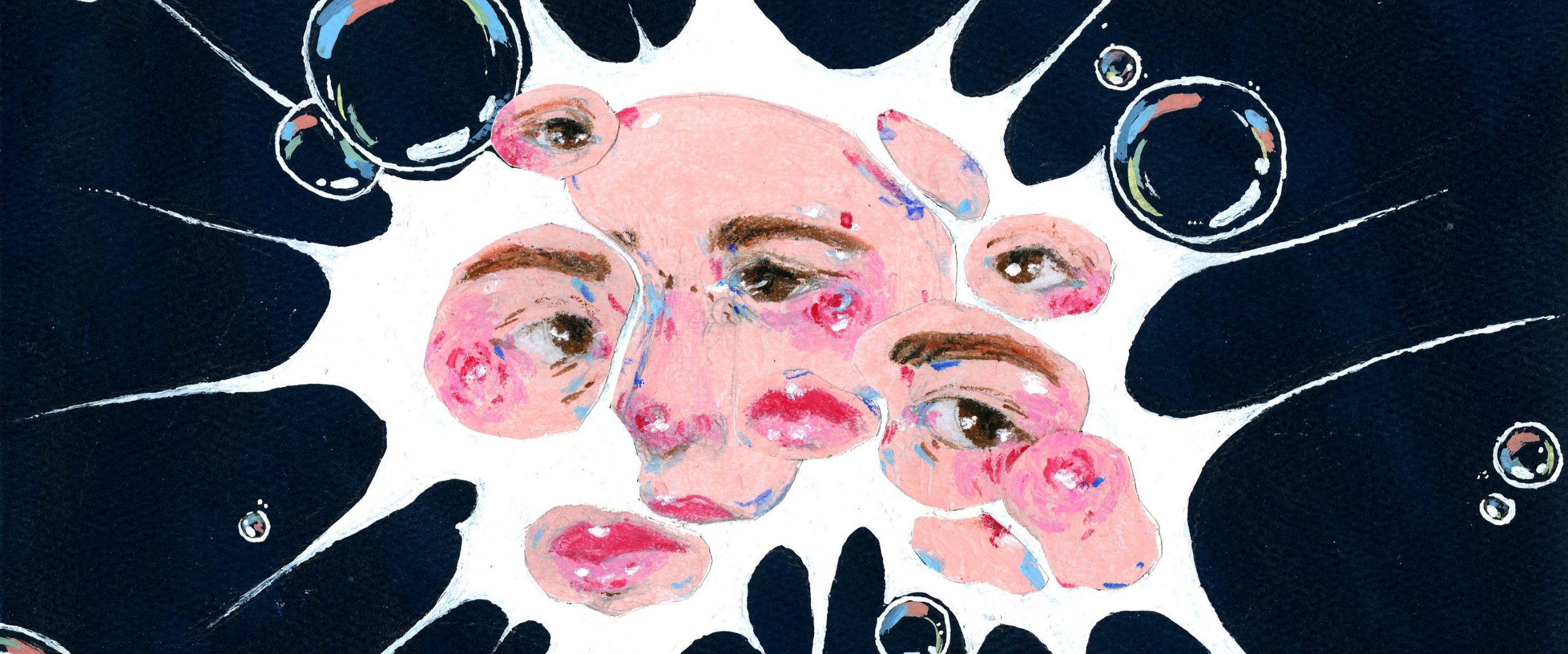Have you ever wondered about the enigmatic world of dreams and their potential to unlock the mysteries of your inner self? Dreams have fascinated humans for centuries, transcending cultural boundaries and captivating our imagination. Beyond being a mere collection of random images and sensations, dreams can serve as a profound window to the soul, offering valuable insights into our emotions, fears, desires, and unresolved conflicts.
The Psychology of Dreams
In order to understand dreams as a tool for self-discovery, it is essential to delve into the psychology behind dreaming. Dreams are the products of our subconscious minds, offering a unique portal to the unconscious realm. There are several theories about the purpose and meaning of dreams, with Freudian, Jungian, and modern perspectives being the most prominent.
According to Sigmund Freud, dreams serve as a pathway to explore repressed desires and emotions, allowing us to fulfill these wishes symbolically. On the other hand, Carl Jung’s theory suggests that dreams are a reflection of the collective unconscious, with archetypal symbols playing a significant role in their interpretation.
Modern psychological research acknowledges the relevance of dreams in understanding emotional processing and memory consolidation. Dreams provide a way for the mind to process the events and experiences of daily life, helping to regulate emotions and establish mental equilibrium.
Dream Recall and Journaling
Before embarking on the journey of dream analysis, one must develop the ability to remember dreams vividly. Dream recall can be enhanced through various techniques, such as keeping a dream journal by the bedside. As soon as you wake up, jot down any fragments of dreams or emotions that linger in your mind. With consistent practice, dream recall becomes more natural, enabling you to capture intricate details from your dreamscapes.
A dream journal serves as a valuable repository of your subconscious thoughts and experiences. It allows you to detect recurring themes, symbols, and emotions in your dreams over time. Analyzing these patterns can provide essential clues about the inner workings of your mind and emotions.
The Language of Dreams: Symbols and Archetypes
In the realm of dreams, symbols act as the language of the subconscious mind. These symbols are not fixed and universal; rather, their meanings are deeply personal and can be influenced by cultural, societal, and individual factors. Common dream symbols may include flying, water, animals, or even specific people from your waking life.
Furthermore, dreams often contain archetypal imagery, representing fundamental human experiences shared across cultures. The archetype of the “hero,” for instance, symbolizes the journey of self-discovery and transformation. Recognizing and interpreting these archetypes can offer profound insights into your psyche and the universal human experience.
Analyzing Dreams: Tools and Methods
Once you have a collection of dreams recorded in your journal, the next step is to analyze and interpret them. Dream analysis is not a one-size-fits-all approach, and various therapeutic methods can be employed. Both Freudian and Jungian techniques are widely used in dream analysis.
Freudian analysis involves dissecting the manifest content (the apparent storyline of the dream) to unveil the latent content (the hidden meaning). By delving into the symbolism and underlying emotions, Freudian analysis aims to expose repressed desires and conflicts.
Jungian dream analysis, on the other hand, places a stronger emphasis on archetypes and the collective unconscious. It explores the broader cultural and universal symbolism present in dreams, seeking to understand their relevance to the dreamer’s personal growth and self-discovery.
When interpreting dreams, it is crucial to consider personal associations and emotional responses to the dream symbols and narratives. Intuition and empathy play significant roles in grasping the deeper meanings hidden in dreams.
One effective technique for diving deeper into dream landscapes is guided imagery or active imagination. By revisiting the dream in a conscious state and engaging with its characters and symbols, you can gain valuable insights and connect with your subconscious mind more intimately.
Discovering the Self through Dreams
In the realm of dreams lies the concept of the “Shadow,” a term coined by Carl Jung. The Shadow represents the suppressed and hidden aspects of our personalities, often containing emotions, desires, and traits that we reject or deny in our waking lives. Dream analysis can provide a glimpse into the Shadow, allowing us to confront and integrate these repressed aspects of the self.
Through dream exploration, you may uncover unresolved traumas, unexpressed emotions, and neglected parts of your identity. Embracing and accepting these revelations can lead to profound personal growth and self-awareness, fostering a deeper connection with your true self.
Lucid Dreaming and Self-Control
Lucid dreaming is a remarkable phenomenon where the dreamer becomes aware of being in a dream while it is still ongoing. This state of awareness offers a unique opportunity to exert control over the dream narrative and environment. Practicing lucid dreaming can enhance self-awareness and self-control in both dream and waking states.
Various techniques, such as reality checks and dream journaling, can help induce lucid dreams. When you achieve lucidity, you can engage in activities like flying, exploring imaginary landscapes, or conversing with dream characters, all while being fully conscious of the dream’s fictional nature.
By utilizing lucid dreaming as a tool for self-discovery, you can consciously confront fears, explore unresolved emotions, and even practice skills or creative endeavors in a safe and controlled dream environment.
Connecting Dreams to Real Life
While exploring the depths of your dreams can be awe-inspiring, the real transformation lies in integrating the insights gained from dream analysis into your waking life. Applying dream revelations to personal growth and self-improvement requires reflection, dedication, and willingness to change.
Reviewing your dream journal periodically and recognizing recurring patterns can help you identify areas in your waking life that need attention or transformation. Embrace positive aspects of yourself reflected in dreams and strive to manifest those qualities in your daily interactions and endeavors.
Moreover, dream-inspired insights can offer creative solutions to real-life challenges. Artists, writers, and inventors throughout history have drawn inspiration from their dreams to produce groundbreaking works of art and innovation.
Cultural and Historical Perspectives on Dreams
Dreams have held significant importance in cultures and societies throughout human history. In ancient civilizations, such as Egypt and Greece, dreams were often seen as divine messages or portals to communicate with deities or ancestors.
Indigenous cultures across the world hold dreams in high regard, incorporating them into spiritual practices and rituals. Dreams are believed to offer guidance, healing, and a deeper understanding of one’s purpose in life.
Religious and mystical experiences in various faiths often involve dreams as a medium of revelation and divine communication. Understanding dreams from cultural and historical perspectives enriches their interpretations and sheds light on the universal nature of dream symbolism.
Dreams and Creativity
One fascinating aspect of dreams is their ability to ignite creativity. Throughout history, artists, writers, and inventors have attributed their most brilliant ideas and creations to dreams.
The surreal landscapes, characters, and experiences that unfold in dreams can serve as a boundless source of inspiration. Dream-inspired creativity often taps into the unconscious mind, bringing forth innovative and original concepts that may not have been accessible during waking hours.
By embracing and cultivating this link between dreams and creativity, you can harness your subconscious mind’s immense creative potential and infuse your creative endeavors with depth and originality.
Overcoming Dream-related Challenges
While dreams can be a source of enlightenment and inspiration, they can also present challenges, particularly when it comes to nightmares. Nightmares are distressing dreams that evoke intense fear, anxiety, or trauma.
If you experience recurring nightmares that cause significant distress, seeking professional help from a therapist or counselor who specializes in dream analysis can be beneficial. Working through the underlying emotions and experiences associated with nightmares can help alleviate their impact on your well-being.
Conclusion
Exploring the world of dreams and engaging in dream analysis offers a profound journey of self-discovery. By understanding the psychology of dreams, interpreting symbols and archetypes, and utilizing lucid dreaming techniques, you can access the vast reservoir of your subconscious mind.
Dreams serve as a window to the soul, revealing the hidden aspects of your true self. Embracehere the messages from your dreams, apply the insights to your waking life, and embark on a transformative path of self-awareness and personal growth.

Welcome to my corner of the digital world. I am Evelyn Rivers, a passionate and dedicated professional psychologist with a profound fascination for the realm of dreams, their meanings, and their immense potential for emotional and spiritual healing. Through this website, I aim to illuminate the path to self-awareness, growth, and enlightenment, driven by the power of dreams and their significance in our lives. More about the author


